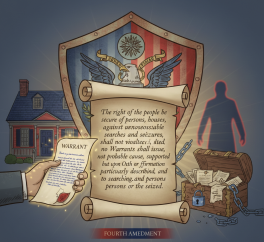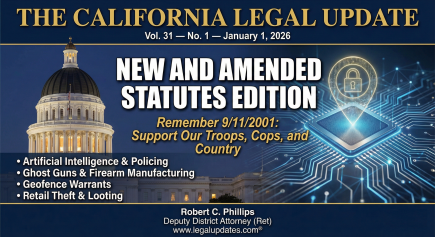

- Ref # CAB00219
- August 19, 2023
Legislative Update: State Lawmaker Proposes Old LWOP Cases Be Eligible for Recall and Resentencing
Legislative Update
By Raymond Hill
Professor Emeritus, Santa Rosa Junior College
Legal Issues
Recall and resentencing of convicted life without parole (special circumstances murder) offenders (SB 94, Dave Cortese (D) Santa Clara, 1170.02 &1172.5 P.C.).
This legislation would institute a legal process whereby an inmate who has been sentenced to life without the possibility of parole before June 5, 1990, and who has served at least 25 years in prison to petition a Superior Court for hearing to recall their sentence. A judge could resentence the inmate to the lesser term of 25 years to life, and potentially make them eligible for parole. The judge’s decision would then be reviewed by the Board of Parole Hearings.
This legislation cleared the Senate with a vote of 22 out of 40 members (a simple majority was needed). The bill is now before the Assembly Public Safety Committee and has been subject to two hearings. The last day to pass the bill by a simple majority is Sept. 14, 2023. If forwarded to the governor, he can either sign the bill, veto it, or take no action and the bill would automatically become law without his signature.
As noted in the California Peace Officers’ Association Legislative Deep Dive from June 2023, the proponents of the legislation argue ....
© 2026 Legal Updates, LLC.
This content is protected by copyright law. Republishing or redistribution in any form without written permission is strictly prohibited. For licensing or reprint requests, contact support@legalupdates.com.



![Warrantless Searches: Do You Know the Difference between ‘Community Caretaking’ and ‘Render[ing] Emergency Assistance?’](/sites/default/files/styles/435_x_242/public/2026-01/GAImage-rb5oktrb5oktrb5o-01242026.png)




